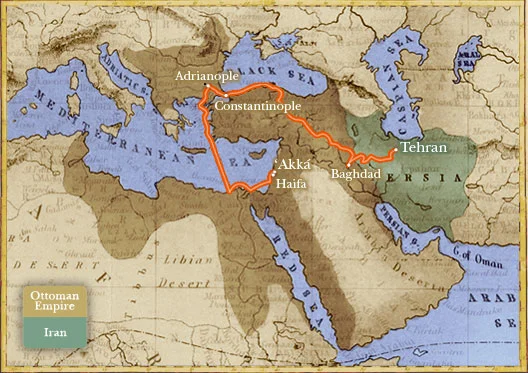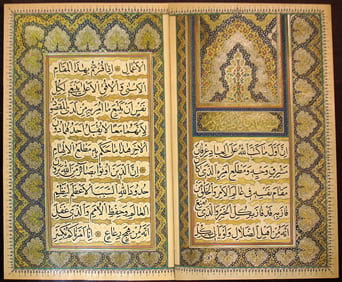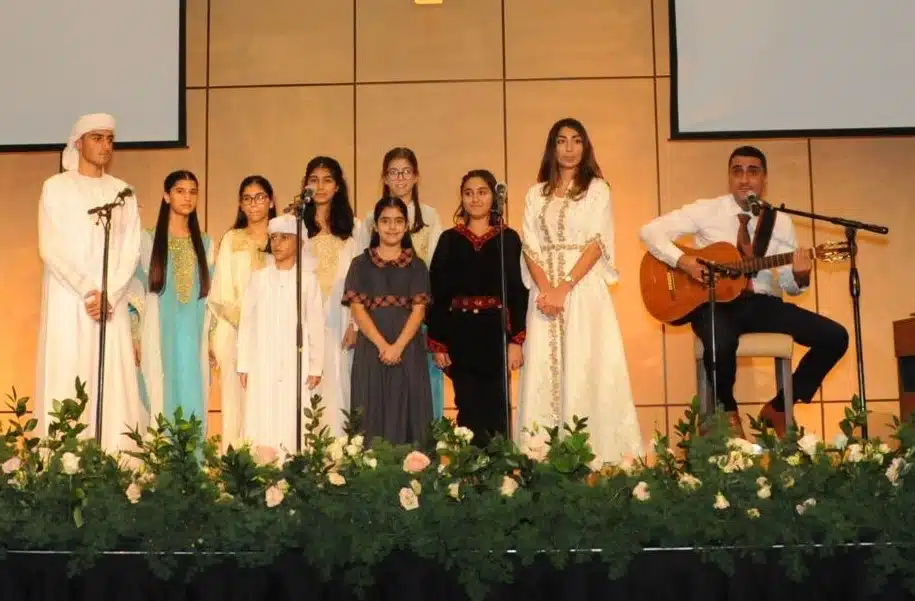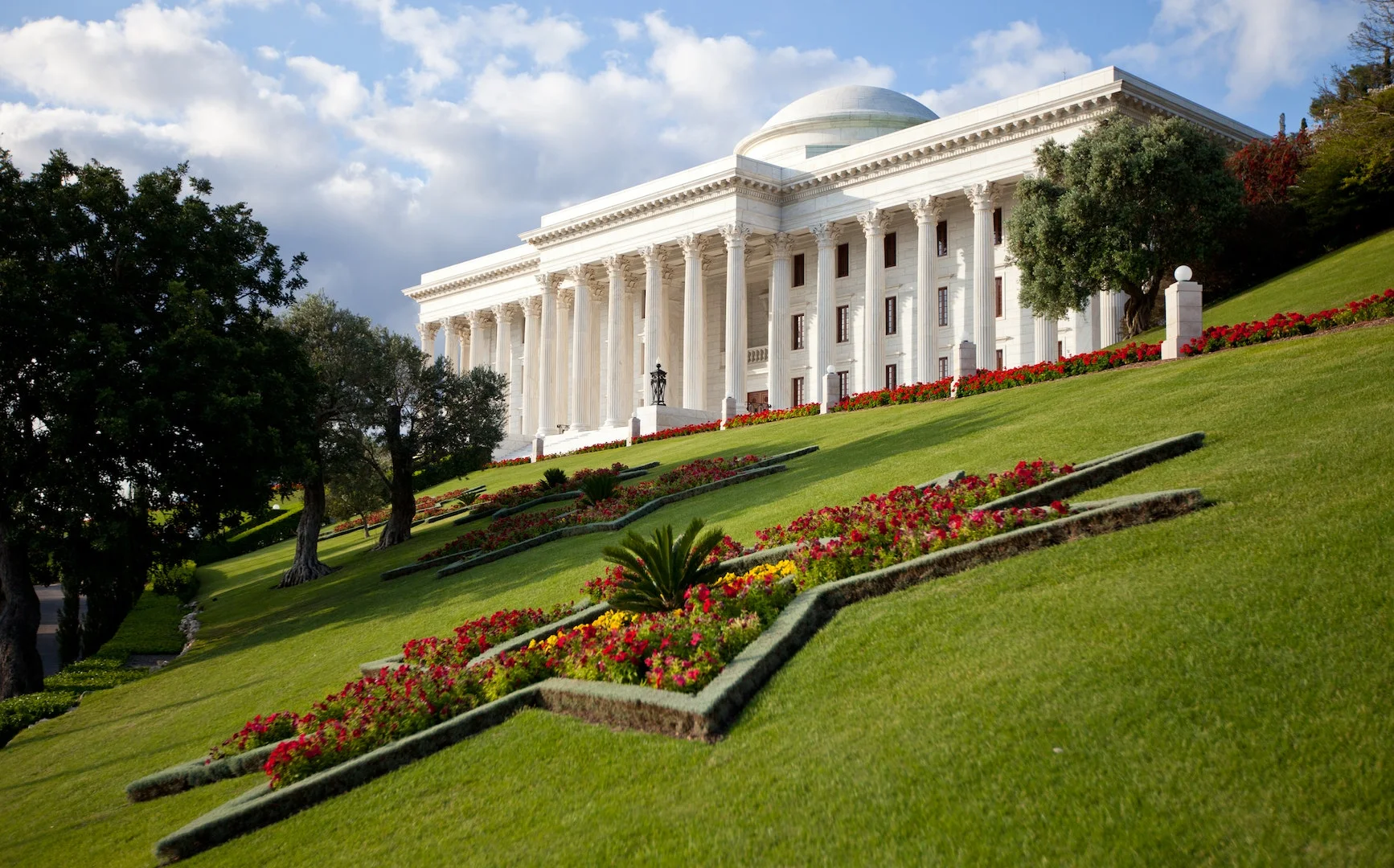“Beware, O believers in the Unity of God, lest ye be tempted to make any distinction between any of the Manifestations of His Cause, or to discriminate against the signs that have accompanied and proclaimed their Revelation. This indeed is the true meaning of Divine Unity, if ye be of them that apprehend and believe this truth.”
- Bahá’u’lláh
Bahá’u’lláh - The Divine Educator
Bahá'ís believe that God is like the radiant sun, while His noble Messengers are pure mirrors reflecting His attributes. As the transcendent and unknowable Being, God cannot be fully comprehended by human beings, since the finite cannot grasp the infinite. Therefore, He sends His Messengers—who are His creation, not of His essence—to reflect His attributes of greatness, power, and authority, much like a mirror reflects the light and warmth of the sun. The mirror is not the sun itself, but rather its complete reflection in all that it displays. Since all divine educators fulfill the same spiritual role in guiding humanity, they are seen as manifestations of One Spiritual Reality, appearing at different times throughout history.
In the mid-19th century, God sent Bahá'u'lláh to deliver a new message to humanity. Over the span of four decades, thousands of verses, letters, and books were revealed from His blessed pen. In these writings, Bahá'u'lláh outlined fundamental principles for a framework aimed at advancing human civilization, addressing both the spiritual and material needs of humanity.
Early Life
Bahá'u'lláh, who was named Mírzá Ḥusayn ‘Alí, was born on November 12, 1817, in Tehran. He demonstrated profound insights and signs of greatness from an early age and despite receiving only basic education at home and no formal schooling, He exhibited extraordinary wisdom and knowledge. Born into a wealthy and noble family, Bahá'u'lláh turned away from a life of privilege and luxury, dedicating Himself instead to caring for the poor and defending the oppressed. Upon the death of His father, Bahá'u'lláh was offered the opportunity to assume his father's prestigious position as a minister, along with the wealth and status that came with it. However, Bahá'u'lláh declined this offer, choosing instead to dedicate His life to humanitarian and spiritual causes. The spiritual and humanitarian distinction earned by Bahá'u'lláh aroused the jealousy of the religiously intolerant in His homeland, making Him a target of opposition. After openly supporting the Báb’s message, He was imprisoned in the most notorious jail in the country and subsequently exiled to Iraq, where He lived for nearly ten years.
Message Declaration
Bahá'u'lláh proclaimed His mission in Baghdad in 1863, in the Garden of Ridván, where He openly declared His divine message. This proclamation drew people from various backgrounds, ethnicities, and social classes. The twelve days Bahá'u'lláh spent in the Garden of Ridván are now commemorated by Bahá'ís worldwide as a significant event, celebrated annually with neighbors and friends as the Festival of Ridván. Among the important works revealed by Bahá'u'lláh in Baghdad are *The Book of Certitude (Kitáb-i-Íqán)*, *The Hidden Words*, and *The Seven Valleys*. These writings are central to the spiritual teachings of the Bahá'í Faith.

Exile
Having lived in exile in Iraq for ten years, Bahá'u'lláh was exiled once again—this time to Turkey. During the four and a half years He spent there, Bahá'u'lláh continued to elaborate on the principles of His message, laying the foundations for global peace, with a focus on justice and solidarity. He conveyed these principles in letters addressed to the kings and rulers of the world, urging them to embrace justice, use their influence to alleviate suffering and war, and work toward the unity of the human race, and the establishment of peace. Among the recipients of these letters were the Ottoman Emperor Sultan ‘Abdu’l-‘Aziz, Náṣiri’d-Dín Sháh of Iran, Napoleon III of France, and Pope Pius IX of the Catholic Church.

Bahá'u'lláh endured repeated exiles and imprisonments, eventually being confined to the prison fortress in the city of ‘Akká in Palestine, which was known as one of the harshest prisons in the Ottoman Empire of the time. Despite the severe conditions of His confinement, Bahá'u'lláh gradually gained the reverence and respect of the people. As His fame spread, religious leaders, government officials, and prominent figures from the region were drawn to Him, seeking His counsel and advice, and considering it a great honor to be in His presence.

Holy Land
Bahá'u'lláh's time in ‘Akká was a period rich in revelation. One of the most significant texts revealed during this time was ‘The Kitáb-i-Aqdas’ (The Most Holy Book), the central book of Bahá'í law and ordinances, written in Arabic. Even from prison, Bahá'u'lláh continued to proclaim His message to the kings and rulers of the world; including Queen Victoria of England, Tsar Alexander II of Russia, Queen Marie of Romania, and Emperor Franz Joseph of Austria. He also laid the foundation for the future administrative institutions of the Bahá'í Faith and revealed His Will and Testament in a book titled *The Book of My Covenant* (Kitáb-i-‘Ahd), in which He appointed His eldest son, ʿAbdu'l-Bahá, as His successor to lead the Bahá’í community after His passing and as the authorized interpreter of His writings.
Bahá'u'lláh remained a prisoner in ‘Akká for the rest of His life. During the nearly twenty-five years until His passing, He continued to publicly proclaim His message, and His influence among the people of the region steadily grew. Bahá'u'lláh passed away on May 29, 1892, in ‘Akká, where His sacred remains rest in the Shrine of Bahá'u'lláh, known to the Bahá’ís as the Holy Shrine. Many Arab poets, religious scholars, and statesmen who were contemporaries of Bahá'u'lláh and had the honor of meeting Him paid tribute to Him in their writings.
Bahá'u'lláh endured imprisonment, torture, and exile for forty years in order to deliver the latest divine message from the Creator. Today, His life and the message He brought are increasingly recognized and spread across the globe, with millions of people who are striving for the betterment of the world beginning to apply His teachings in their personal and collective lives.

To get a better insight into the impact of Bahá'u'lláh's message..
The Bicentenary of the birth of Bahá’u’lláh
In commemoration of the bicentenary of the birth of Bahá'u'lláh, we in the United Arab Emirates and the rest of the globe celebrated the occasion with our neighbors and friends. Click to watch some of the worldwide celebrations.
Ridván celebrations
The Bahá’ís of the United Arab Emirates celebrate the Festival of Ridván every year with their neighbors and friends in an atmosphere of love and joy. Below are photos and videos of Ridván celebrations in the United Arab Emirates.


